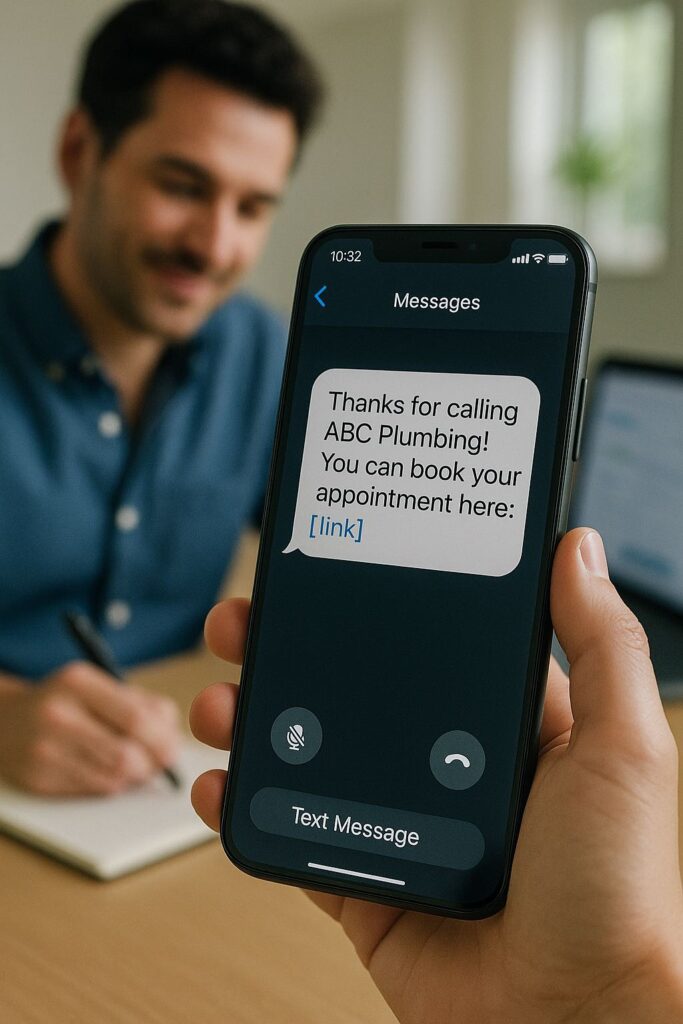
In today’s fast-paced business environment, customer service plays a crucial role in maintaining client relationships and building a reputable brand. One of the most critical aspects of customer service is handling inbound calls effectively. Missed or poorly managed calls can result in lost business opportunities, frustrated customers, and a tarnished brand reputation. AI receptionists have emerged as a game-changing solution to streamline communication, enhance efficiency, and improve customer satisfaction.
The Role of AI Receptionists in Business Operations
AI receptionists leverage artificial intelligence to handle incoming calls, answer frequently asked questions, schedule appointments, and route calls to the appropriate departments. These virtual assistants are designed to function 24/7, ensuring businesses never miss an important call, even outside of regular working hours. With advanced natural language processing (NLP) and machine learning capabilities, AI receptionists provide human-like interactions, making customers feel heard and valued.
Key Benefits of AI Receptionists
1. 24/7 Availability
Unlike human receptionists, AI-powered virtual assistants do not require breaks, vacations, or sleep. This ensures round-the-clock availability, making businesses more accessible to customers regardless of the time of day. For industries such as healthcare, legal services, and real estate, where clients may need assistance outside standard office hours, AI receptionists can provide timely and efficient responses.
2. Reduced Wait Times
One of the major pain points in customer service is long wait times. AI receptionists can handle multiple calls simultaneously, ensuring that customers do not have to endure frustrating hold times. By quickly answering queries and directing calls to the right department, AI solutions enhance customer satisfaction and improve the overall experience.
3. Improved Call Routing and Personalization
AI receptionists can intelligently route calls based on caller intent, ensuring that customers reach the right department or individual without unnecessary transfers. By integrating with customer relationship management (CRM) systems, AI-powered receptionists can personalize interactions by recognizing returning customers and retrieving their previous interactions, creating a more seamless experience.
4. Cost Savings
Hiring and training human receptionists can be expensive, especially for small businesses. AI receptionists provide a cost-effective alternative, reducing labor costs while maintaining high levels of efficiency. Businesses can allocate resources to other critical areas without compromising on customer service quality.
5. Elimination of Human Error
Human receptionists can sometimes make mistakes, such as misrouting calls, forgetting important details, or miscommunicating information. AI receptionists operate with high accuracy, ensuring that calls are handled correctly, appointments are scheduled without errors, and critical messages are relayed accurately.
6. Increased Productivity for Staff
AI receptionists take on repetitive tasks such as answering FAQs and scheduling appointments, freeing up human employees to focus on more complex and value-driven tasks. This leads to higher productivity and job satisfaction for staff members, as they can concentrate on work that requires human creativity and problem-solving skills.
7. Scalability and Flexibility
As businesses grow, so do their communication needs. AI receptionists can scale effortlessly to accommodate higher call volumes, ensuring that no customer is left waiting. Whether a business experiences seasonal spikes in call traffic or is expanding to new markets, AI-powered solutions provide the flexibility to adapt to changing demands.
Industry-Specific Use Cases for AI Receptionists
Healthcare
AI receptionists can assist medical practices by scheduling patient appointments, sending appointment reminders, and answering common queries about office hours and services. This reduces the burden on front-desk staff and ensures that patients receive timely and accurate information.
Legal Services
Law firms can benefit from AI receptionists by streamlining client intake processes, scheduling consultations, and answering frequently asked legal inquiries. This allows attorneys to focus on casework while ensuring clients receive prompt responses.
E-Commerce and Retail
Online businesses and retail stores can use AI receptionists to handle order inquiries, process returns, and provide shipping updates. This enhances the shopping experience and improves customer loyalty.
Automotive Services
AI-powered assistants can schedule car repair appointments, provide information on services, and send automated reminders for maintenance check-ups. This helps auto shops manage customer interactions efficiently.
Real Estate
Real estate agencies can leverage AI receptionists to schedule property viewings, answer inquiries about listings, and collect leads. This speeds up the home-buying process and improves client engagement.
Financial Services
Banks, credit unions, and financial advisors can use AI receptionists to manage customer inquiries, set up meetings, and provide information on loan options or account details. This ensures better financial guidance and service availability.
Overcoming Common Concerns About AI Receptionists
Despite the many benefits of AI receptionists, some businesses hesitate to adopt them due to concerns about impersonal interactions and customer resistance. However, advancements in AI technology have significantly improved the conversational abilities of virtual assistants. With machine learning, AI receptionists continuously refine their understanding of customer needs, creating more natural and engaging interactions. Additionally, businesses can implement a hybrid approach, where AI handles routine tasks, and human agents intervene for more complex inquiries.
The Future of AI Receptionists in Business
As AI technology continues to evolve, AI receptionists will become even more sophisticated, providing more intuitive and human-like interactions. With the integration of voice recognition, sentiment analysis, and multilingual capabilities, AI-powered receptionists will further enhance the customer experience across various industries.
Companies that adopt AI receptionists now will gain a competitive edge by streamlining operations, reducing costs, and improving customer satisfaction. In an era where customer expectations are higher than ever, AI receptionists offer a reliable and efficient solution to meet and exceed those demands.
Conclusion
AI receptionists are revolutionizing the way businesses handle customer interactions. By providing 24/7 availability, reducing wait times, improving accuracy, and lowering costs, they enhance both efficiency and customer satisfaction. Whether in healthcare, legal services, retail, or real estate, AI-powered solutions offer tailored benefits that can transform communication strategies. As AI technology continues to advance, the role of AI receptionists will only become more vital in delivering superior customer service and driving business growth.

